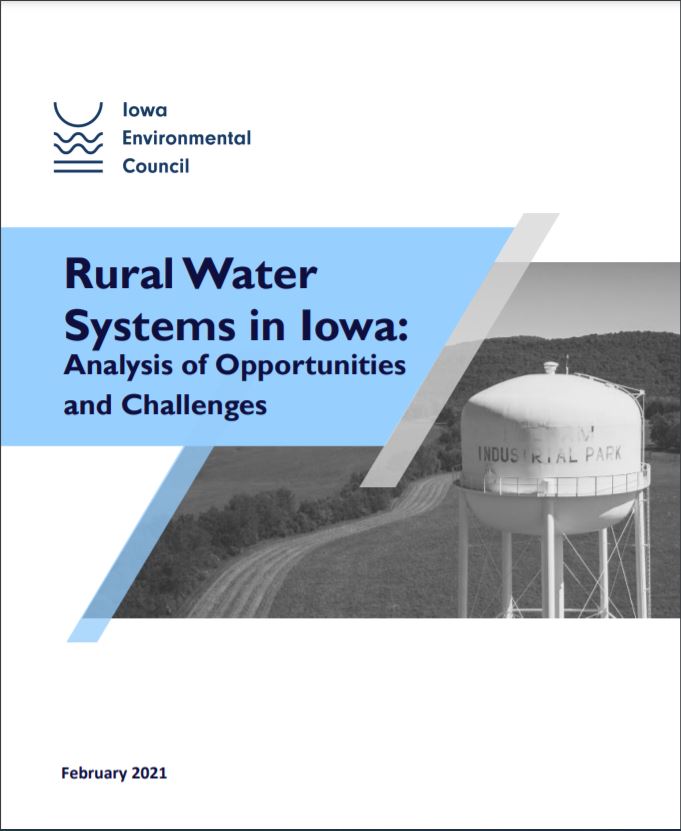Council Releases Rural Water System Report
posted
on Wednesday, March 3, 2021
in
Water and Land News
 IEC has released a new report, Rural Water Systems in Iowa: Analysis of Opportunities and Challenges. The report releases findings based on a survey of rural water administrators, conducted over the past year in conjunction with Dr. Silvia Secchi at the University of Iowa .
IEC has released a new report, Rural Water Systems in Iowa: Analysis of Opportunities and Challenges. The report releases findings based on a survey of rural water administrators, conducted over the past year in conjunction with Dr. Silvia Secchi at the University of Iowa .
The survey sought information on the issues rural water utilities face. The findings reflect the challenges experienced by those in the rural parts of the state writ large – declining populations, outdated infrastructure, and ongoing water quality issues.
“We wanted to better understand how rural water systems fit into the larger picture of drinking water access in Iowa,” said Dr. Secchi. “It’s unknown just how many Iowans rely on private wells as their primary drinking water source. Understanding barriers and opportunities for rural water systems to provide service will help ensure that all Iowans have access to clean, safe drinking water.”
The report highlights opportunities for rural water systems to fill needs in rural Iowa where more and more municipal systems struggle to provide low-cost water service to declining populations of customers with increased treatment expenses. Connecting to rural water systems creates an economy of scale to reduce individual customer cost.
"Rural water systems play a critical role in rural Iowa. Investment in these systems should be viewed as an important element of rural revitalization and improving rural quality of life,” says Alicia Vasto, co-author of the paper.
 The survey findings led to recommendations to address drinking water issues in rural Iowa. Rural Iowans would benefit from a comprehensive regional or state-level approach to drinking water treatment, access, and planning. A proactive approach is especially important in the face of climate change, which could affect water quantity and availability in different ways in different parts of the state.
The survey findings led to recommendations to address drinking water issues in rural Iowa. Rural Iowans would benefit from a comprehensive regional or state-level approach to drinking water treatment, access, and planning. A proactive approach is especially important in the face of climate change, which could affect water quantity and availability in different ways in different parts of the state.
Read the full report for a look at the challenges identified by the research, and the full recommendations to improve water quality and access for Iowans across the state.
- clean water
- drinking water
- public health
- water quality
- water safety